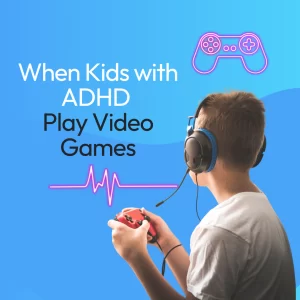Psychological flexibility: the process of remaining fully in contact with the present moment, in a way that helps us act out behavior that is in line with our values, even in the face of difficult thoughts/emotions.
What are the things that can get in our way?
Have you ever wished that you could control upsetting feelings of anxiety, fears, or unwanted thoughts and memories? One of the things that people seeking therapy always wonder is
if I could just control my thoughts, I would be happy/healthy! Well, it turns out that attempting to control or get rid of our ‘unwanted thoughts’ is a behavior that is driven by the idea that
healthand
happinessare the absence of distressing thoughts. We look around and we see that everyone around us appears to be facing the world, bravely. Everyone around us appears to be in control of their emotions, and their Facebook and Instagram further evidence their happiness. But, do these things really reveal the truth?
Dr. Steven Hayes, one of the originators of
Acceptance & Commitment Therapy (ACT), suggests that ‘the idea that suffering is best described in terms of chemical abnormality (i.e., mental illness) has a superficially appealing flip side, namely, that health and happiness are the natural homeostatic states of human existence.’ He refers to this idea as the
assumption of healthy normality, and indicates that we may have done a great dis-service to ourselves in our attempt to rid ourselves of these “unwanted” thoughts and feelings. In fact, it may be the case that a flexible approach to one’s personal experiences is more likely associated with health and while being, even when those experiences might be upsetting, or painful. And attempting to control our thoughts, even the ones that we find distressing, may even give the thoughts even more fuel!
How does one manage all of the stress?
Imagine that a dog is exposed to something upsetting—think, mailman—the dog will bark and bark, run around in circles, and maybe jump up on the couch and stare longingly out the window as long as the truck is in view or the faithful civil servant may be around. Once the mailman is gone, however, the dog goes back to his life. He does not spend time anxious about the stress of the mailman in the future. His stress about the mailman is confined to the moments in time when he can see him. Now, we could make the case that being a person is a bit more…complicated…than being a dog, and the reason we might say that is because people have discovered how to use a complicated system of communication—speech—to describe every part of our world; including the world that exists inside each and every one of us.
The dog does not spend time avoiding the negative emotions of the mailman throughout the day because the dog only responds to the mailman in the moment of his/her presence. People, however, get in our mind that the metaphorical-mailman is coming tomorrow, and we identify that this mailman makes us feel insecure, and all of a sudden just the thought of the mailman can elicit feelings of anxiety! Just like that, we become pre-occupied with the future in a way that takes us out of the present, and makes us a target for all kinds of negative emotions.
Align with our Values?
So, what can we do to make ourselves more psychologically flexible? Well, the first step is to identify our values.
“When people are out of touch with closely held personal values, their behavior is instead controlled by social conformity, attempts to please others, or avoidance.” The next step is to realize that
Mindfulness, or our ability to contact the present moment, can help us be aware of unwanted internal experiences. And that awareness can help us not to miss out on our lives while ruminating about the past or future. Third, try to watch your thoughts without judgment and be aware of where your mind wanders throughout the day. When you find that your mind is wandering try to simply notice to where it was wandered and acknowledge that, instead of pressuring yourself to get back on track.
Devoting finite attentional resources and energy to regulating emotions, whether it is attempting to decrease the negative or increase the positive, “steals” time and effort from living out our goals and values. Ironically, by being flexible and
living in service of our deepest values instead of being narrowly focused on achieving happiness, we end up experiencing more frequent joy and meaning in life and less distress; we end up with greater vitality and degrees of freedom to live each moment. In the coming posts we are going to review the different areas in the ACT model of psychological flexibility, and see what we can do to increase our psychological flexibility!
Stick with us!

1 thought on “Psychological Flexibility – Revisiting the old before the new”
Pingback: Fusion: Can our words influence our reality? - Stand 4 Kind - ACT